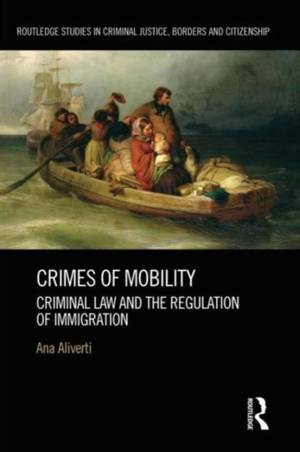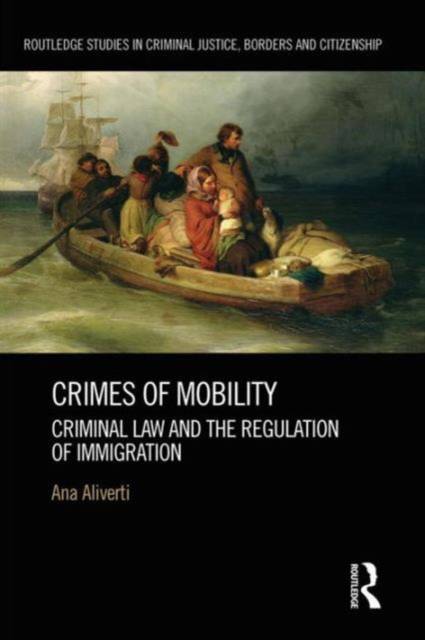
- Retrait gratuit dans votre magasin Club
- 7.000.000 titres dans notre catalogue
- Payer en toute sécurité
- Toujours un magasin près de chez vous
- Retrait gratuit dans votre magasin Club
- 7.000.0000 titres dans notre catalogue
- Payer en toute sécurité
- Toujours un magasin près de chez vous
Description
Winner of the 2014 British Society of Criminology Book Prize
This book examines the role of criminal law in the enforcement of immigration controls over the last two decades in Britain. The criminalization of immigration status has historically served functions of exclusion and control against those who defy the state's powers over its territory and population. In the last two decades, the powers to exclude and punish have been enhanced by the expansion of the catalogue of immigration offences and their more systematic enforcement.
This book is the first in-depth analysis on criminal offences in Britain, and presents original empirical material about the use of criminal powers against suspected immigration wrongdoers. Based on interviews with practitioners and staff at the UK Border Agency and data from court cases involving immigration defendants, it examines prosecution decision making and the proceedings before the criminal justice system. Crimes of Mobility critically analyses the criminalization of immigration status and, more generally, the functions of the criminal law in immigration enforcement, from a legal and normative perspective.
It will be of interest to academics and research students working on criminology, criminal law, criminal justice, socio-legal studies, migration and refugee studies, and human rights, as well as criminal law and immigration practitioners.
Spécifications
Parties prenantes
- Auteur(s) :
- Editeur:
Contenu
- Nombre de pages :
- 222
- Langue:
- Anglais
- Collection :
Caractéristiques
- EAN:
- 9780415839228
- Date de parution :
- 09-06-15
- Format:
- Livre broché
- Format numérique:
- Trade paperback (VS)
- Dimensions :
- 156 mm x 234 mm
- Poids :
- 353 g

Les avis
Nous publions uniquement les avis qui respectent les conditions requises. Consultez nos conditions pour les avis.






